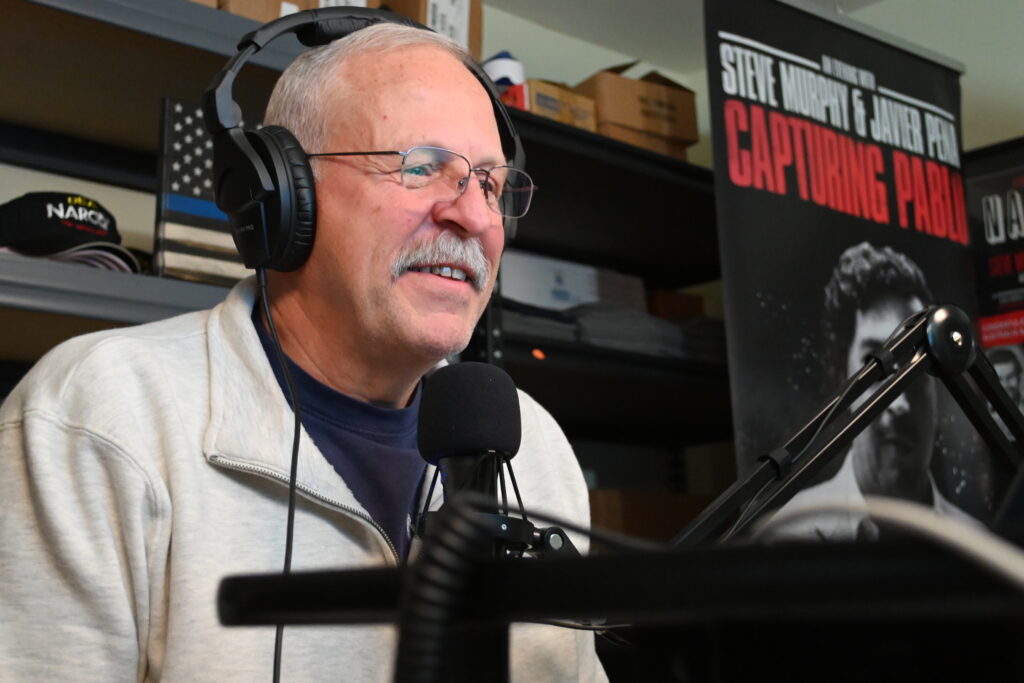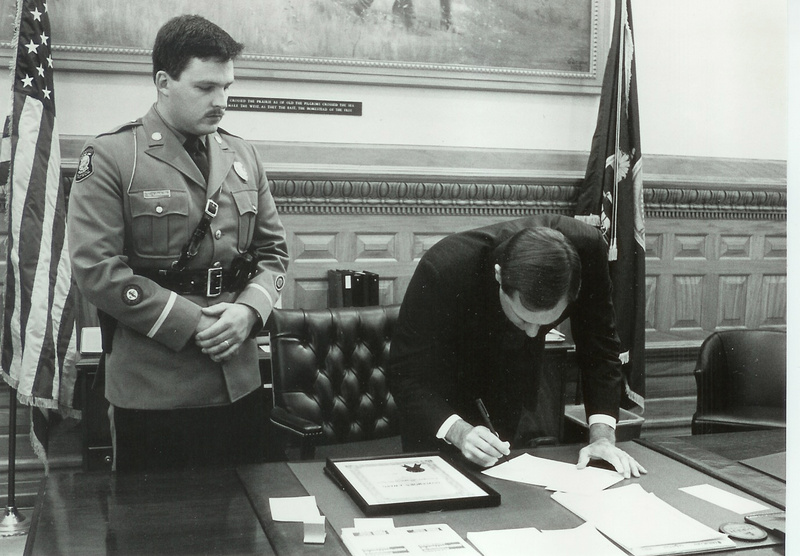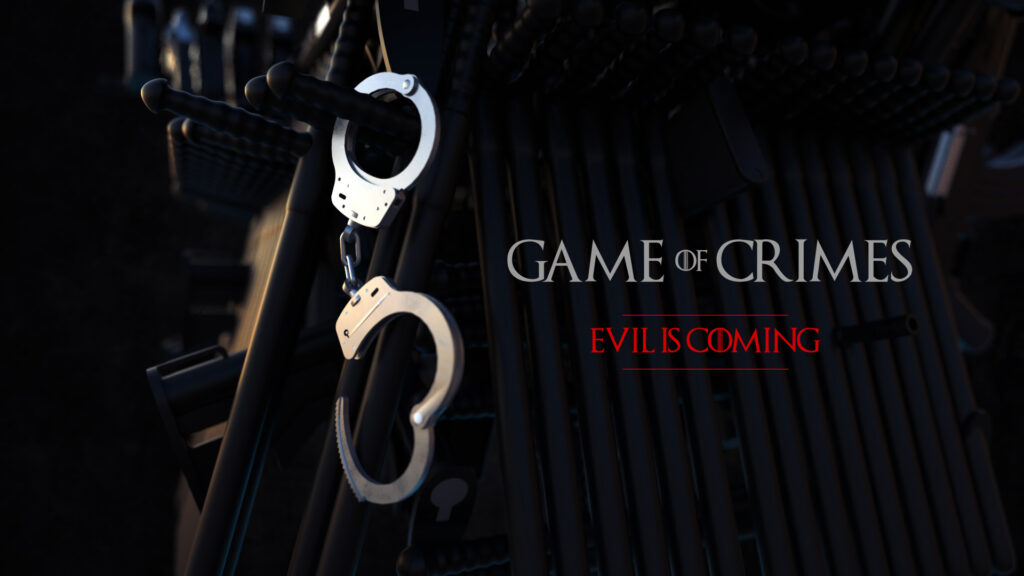
Only Murders in the ’Burn
By Chris Wadsworth
Every week, Morgan Wright goes into the den at his home in Ashburn’s Belmont Ridge II neighborhood, closes the doors and sits in front of an array of computers and audio equipment. He’s preparing to record the latest episode of his “Game of Crimes” podcast that has attracted thousands of listeners around the world.
“Game of Crimes” is a weekly interview-based true crime podcast that goes behind some of the biggest incidents in national and international crime.
Wright is a former state trooper and police detective from Kansas who assisted in the Oklahoma City bombing investigation before moving to the Washington area, where he worked for defense contractors and big tech companies. He’s also a former senior advisor with the U.S. State Department’s Anti-Terrorism Assistance Program and a former technical advisor for the “America’s Most Wanted” television program and has appeared on network and cable news programs more than 700 times to discuss technology and national security topics.
Wright’s co-host and partner in the podcast is former Ashburn resident Steve Murphy. Regular readers will remember Murphy is a former federal agent who helped bring down Colombian drug lord Pablo Escobar and was also one of the men on whom Netflix based its hit series “Narcos.” Ashburn Magazine featured Murphy in our cover story back in July 2020 before he and his wife moved to Florida.

Ashburn Magazine sat down with Wright to discuss the podcast and how such a serious show originates right here in our relatively quiet community. Here are excerpts from our conversation.
Q: If you had 10 seconds in an elevator to explain the podcast’s concept to someone, how would you describe it?
Morgan Wright: “We are a long form, interview-style true crime podcast where we actually interview the people involved in some of the biggest cases that have ever happened. Pablo Escobar. The hunt for the D.C. Sniper. The Boston Marathon bombing. The Green River Killer. The capture of El Chapo. We also talk about cases that are important, but people have probably never heard about. We’ve talked with human sex trafficking victims, people impacted by fentanyl. We interview law enforcement, victims, even the criminals themselves sometimes.”
Q: The podcast is called “Game of Crimes.” Tell us about that name: How did you come up with it and what does it signify?
“Watching ‘Game of Thrones’ one night, it just came to me. I said, ‘Hey, this is what it is. It’s cat-and-mouse. It’s good guys versus bad guys, good girls versus bad girls. So, I came up with ‘Game of Crimes.’ We always end our podcast by saying, ‘Thank you for playing the biggest, baddest, most dangerous game of all – the Game of Crimes.’ Our tagline is ‘Evil is coming,’ just like in ‘Game of Thrones’ when they say, ‘Winter is coming.’”
Q: At the time we are talking, you are up to Episode 127. That’s a lot of episodes. You have probably already surpassed the vast majority of podcasts. Many seem to come and go quickly. What’s your secret to success?
“Seven episodes is kind of the cliff – a lot make it to seven or eight episodes and then they fall off. Steve and I love telling stories, and the people love the banter, too. We give each other crap all the time. I’m busting his chops for leaving me and going to Orlando and getting old and stuff. But I guess part of our secret sauce – and we do it without doing it in your face – is telling the story of law enforcement so people understand there are real people behind the badges, real people behind the stories.”
Q: Why is that important to you?
“We got so disheartened and disgusted by a lot of the stuff going on – the defund the police and how they were being treated. If you only understood what they go through on a daily basis. I’ve lost more friends to suicide then I have in the line of duty. It’s a tough business to be in.”
Q: Who was your most memorable guest?
“That’s hard. I will tell you one – Episode 60. Natasha Herzig. Natasha came from a family in California. A very pretty young lady. Her family were missionaries. But she ended up falling victim to human sex trafficking. It was such an elaborate way that they recruited her. Long story short – she was trafficked for a year and a half. After she got out, she did adult films. You think of some of the people in porn and the sex industry and you think, ‘I wouldn’t do that’ and you think less of them. So, this was one of the interviews that really got to me. Natasha changed my worldview about this… and how we think about people in that industry. Now, my thought is not what are they doing and why would they do it. It’s about what led them to doing it. Were they trafficked? Were they victimized? What got them to that point?”
Q: What is it about true crime that seems to fascinate people? Why the huge interest in stories and dramas like this?
“Have you ever driven by an accident? What do you do when you drive by an accident? You slow down and you look. This is what [true crime] is to most people. For some reason, there is a morbid curiosity, a morbid fascination. Nothing is more serious than murder. Murder is the ultimate crime. Can you get away with it? Or will you get caught? It’s a vicarious thrill for them. They can live through it, but they’re not in danger like the actual victim.”

Q: How big is the audience for “Game of Crimes”? Is it profitable?
“We make money. It’s strange because when you look at the statistics, we are in the top 0.5% of all podcasts that are out there. But the real money is made at the top 0.1%. So, it’s not something you can just quit your day job and do. We don’t like to give out [audience] numbers due to our contract with Audioboom (Editor’s note: a podcast distribution platform), but I can put it this way – our downloads are in the millions historically.”
Q: What does the future hold for the “Game of Crimes” podcast?
“We have been approached by a couple of folks that represent production companies. During the recent writers’ strike and actors’ strikes, network television and cable were starving for content. We actually had some people reach out that said they would like to take some of the podcasts and turn them into episodes [of their shows]. The sticking point has always been … a lot of them really just want access to our content and want to pay us nothing. And we said, ‘Sorry, folks, this is not a charity.’ We are not a dot-org. We are a dot-com. And if you want to use our stories and our stuff, there is exclusivity, and it has to be very clear we’re the sources of it because we want the traffic to come to us {and the podcast].”
Q: Is anything brewing at the moment?
“We’re still working on an opportunity right now, so we’ll see where that goes. Some podcasts have become TV shows, or they have made series about them. We have a couple of stories that we think would fit that. But we think there is a different way to tell a story than the way they currently do it.”
To check out the “Game of Crimes” podcast, visit gameofcrimespodcast.com or search for it on whatever podcast platform you use.


